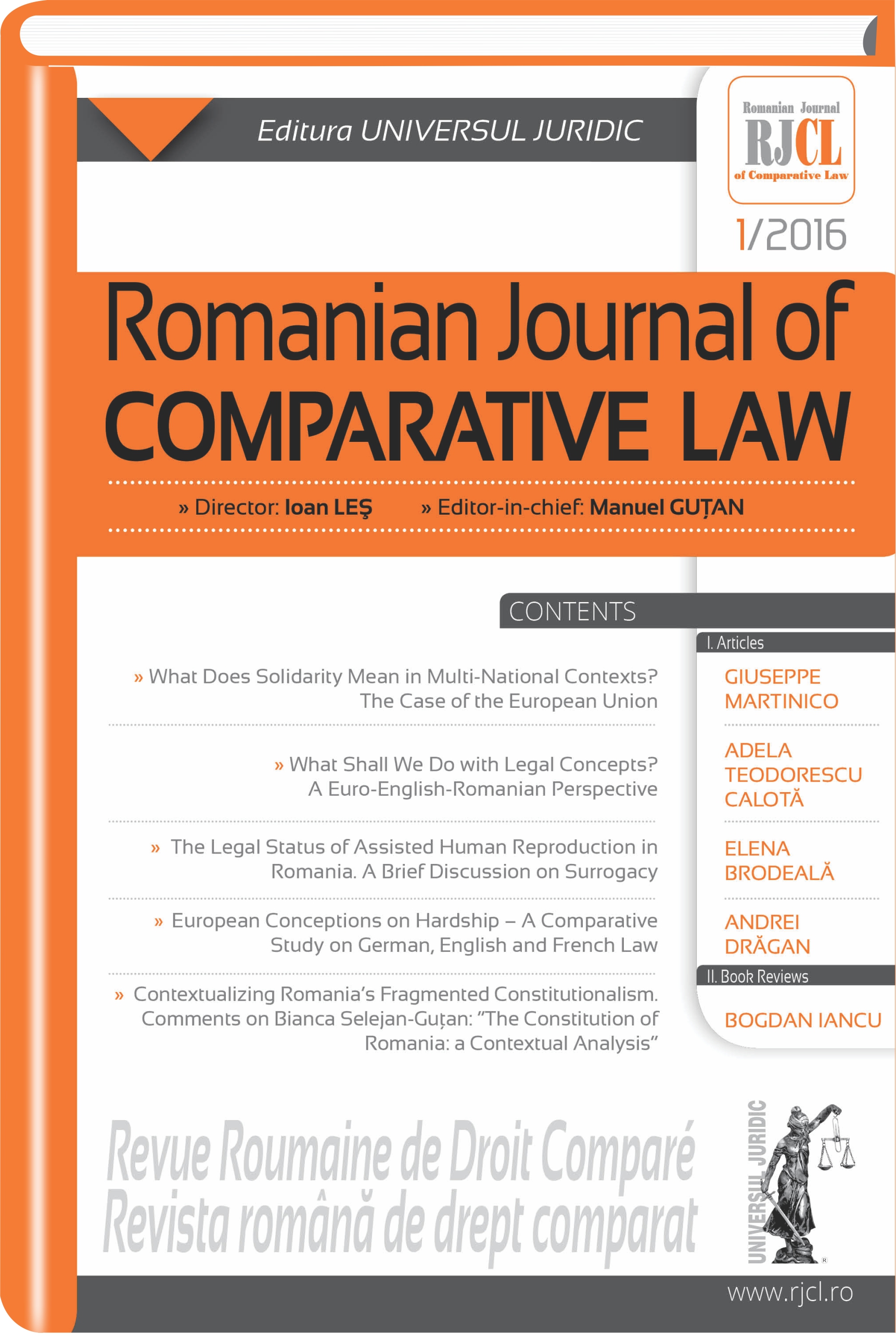The Legal Status of Assisted Human Reproduction in Romania. A Brief Discussion on Surrogacy
The Legal Status of Assisted Human Reproduction in Romania. A Brief Discussion on Surrogacy
Author(s): Elena BrodealăSubject(s): Law, Constitution, Jurisprudence
Published by: Universul Juridic
Keywords: reproductive rights; assisted reproduction; surrogacy; Romania; Socialist legacy;
Summary/Abstract: This article discusses the legal situation of assisted reproduction in Romania. It explains the main legal provisions in this field and how assisted reproduction came to be regulated in Romania. Moreover, the article also aims to illustrate some of the reasons that led to a relative lack of regulation in the domain of human reproduction in Romania and why a legal framework in this domain is needed by discussing the specific case of surrogacy. During State Socialism, Romania had one of the harshest anti-abortion legislations in the history of Europe. It is believed that between 1966 and 1989, the period during which this legislation was in place, around 10.000 women died because of illegal abortions, 2.000 were imprisoned and many others had to deal with serious health problems for the same reason. After the fall of State Socialism and after such a strong invasion of the State in the private lives of its citizens, Romanian law-makers were rather reticent to take a position vis-à-vis the power of the State to intervene in the domain of human reproduction. This inevitably resulted in a legislative gap in this field, which includes the area of assisted reproduction. As this article shows, there were several attempts to create a more comprehensive legal framework for assisted reproduction. However, none of these were appropriate for the complexity of the questions raised by assisted reproduction. Apart from the problematic content of the legislative proposals, discussing them and assisted reproduction as means of counteracting the current demographic crisis existent in Romania is also subject to criticism. This is because access to assisted reproduction is rather exclusive (and exclusionary) and it is generally granted to those who are informed about it and who can afford it. In the last part, the paper brings to light some of the problems that arise in practice because of the current legislative gap. To do this, the paper highlights how Romanian courts have dealt so far with surrogacy that occurs in Romania although no regulation surrounding it exists. Finally, the author concludes with a call for further inter- and multidisciplinary research (e.g. feminist, medical, legal, ethical) regarding the issues connected to assisted reproduction in Romania and for elaborating a proper legal framework in this area to prevent any kind of abuses and inequalities.
Journal: Revista Română de Drept Comparat
- Issue Year: 2016
- Issue No: 01
- Page Range: 56-74
- Page Count: 13
- Language: English
- Content File-PDF

